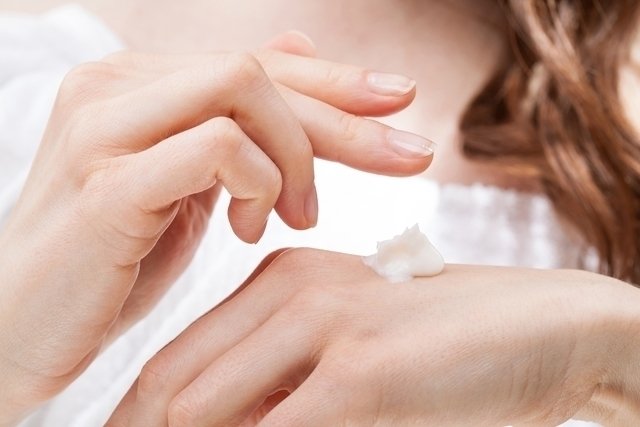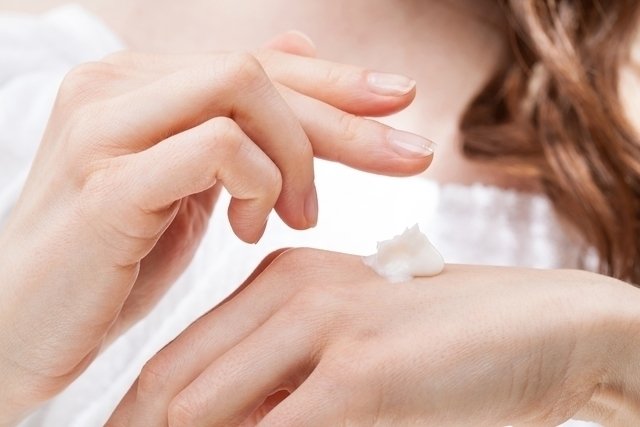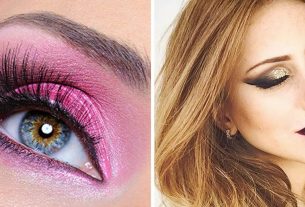Dry skin must be cared for daily to ensure good hydration, maintain the skin’s natural protective barrier and adequate cell renewal. To do this, it is essential to avoid very hot baths, not use loofahs or bath brushes, and always apply a good moisturizing cream after bathing.
This care can help in the short or long term, both in the treatment and prevention of dry skin. Furthermore, to keep your skin hydrated and free from dryness for longer, you must ensure that your body is well hydrated by drinking plenty of water per day, avoiding stress and sleeping at least 8 hours per night.

Daily care for dry skin
Some care that is important to help improve dry skin and that should be done daily are:
1. Avoid using loofahs or bath brushes
Loofahs and bath brushes can provide a greater feeling of cleanliness, however, when used daily or with great force, they act as an exfoliant which, if done daily, removes the protective layer of the skin, reducing its moisture and leaving the dry skin. The ideal is not to use loofahs or bath brushes every day, using them only 2 to 3 times a week.
Additionally, drying your skin with rough towels also causes damage to the skin’s protective layer, which can also contribute to dry skin.
2. Avoid very hot baths
Very hot or long baths should be avoided as high temperatures, generally above 38ºC, remove the natural oil that is part of the skin’s protective barrier, leaving it dry and dehydrated.
To avoid removing oil from the skin, it is recommended to take quick showers, warm baths or baths with colder water, if possible, to avoid drying out the skin.
3. Use a moisturizing soap
Soaps, even those with a neutral pH, can excessively remove the outermost layer of fat from the skin, which hydrates it and protects it against dryness, especially hands that are washed several times a day, which can become very dry.
A good way to maintain skin moisture is to use a soap with moisturizing properties or neutral liquid soap, as they prevent the removal of the skin’s protective barrier and dryness, giving the appearance of more hydrated skin.
4. Apply moisturizing cream to your body
Applying moisturizing cream to the body helps reduce itching, hydrate and treat dry skin, as it replenishes nutrients and oil that the skin needs to maintain moisture. Furthermore, you must use the correct moisturizer for each part of the body, as the composition of the skin varies, and moisturizing products are prepared specifically according to each area of the body. Therefore, you should apply body moisturizer on your body, face cream only on your face and foot cream only on your feet, respecting these guidelines.
The ideal is to apply moisturizer every day to keep your skin hydrated and prevent your skin from becoming dry again.
5. Avoid facing the air conditioning
Facing the air conditioner or fan causes the skin to lose water through evaporation, which leads to skin dehydration and dryness, leaving the skin drier and rougher.
On hotter days, when it is necessary to use air conditioning or a fan, the ideal is not to leave them facing directly towards the body and always place a bucket of water or a damp cloth in the room to prevent the air from becoming too dry and the skin dehydrated and dry.

Other long-term care
In addition to daily care, other care must be taken and maintained in the long term to recover moisture, softness, hydration and shine from dry skin, ensuring beautiful and hydrated skin, and include:
1. Drink 8 glasses of water a day
To keep your skin hydrated and dry, you should drink at least 8 glasses of water a day, as your skin also needs to be hydrated from the inside, through the water you drink each day.
For people who have difficulty drinking water, it may be interesting to drink sparkling water with mint or cucumber, for example, as well as unsweetened teas and fruit juices.
Watch the video with nutritionist Tatiana Zanin with other tips for increasing water consumption:
2. Exfoliate your skin regularly
Exfoliation is essential to remove dead skin cells which, when they accumulate in the outer layers, make the skin appear dull, dry and flaky, and can even clog pores. Still, the ideal is to exfoliate a maximum of 2 to 3 times a week, as excessive exfoliation damages the skin and causes greater dryness.
Additionally, exfoliating your skin helps expose a new layer of skin ready to absorb moisturizer more effectively when applied right after exfoliation, which can help increase your skin’s elasticity, making it appear younger, smoother. , more hydrated and healthier.
3. Avoid stress
Stress leads to an increase in the hormone cortisol which can affect blood flow to the skin and cell renewal, leaving skin drier and duller.
Therefore, knowing how to deal with stress or avoid situations that can cause it is essential to keep your skin beautiful and healthy. A good way to combat stress is to practice physical activity regularly, do meditation, yoga or develop a hobby such as painting or photography, for example. Check out tips on how to combat stress.
4. Sleep 8 hours a night
Sleeping at least 8 hours a night helps keep your skin healthy, as sleep is the body’s time for restoration, when skin cells are also repaired and regenerated. Furthermore, tiredness and stress from not getting enough sleep increase levels of the hormone cortisol, which directly influences skin hydration and can make it drier.
5. Have a healthy diet
Diet for dry skin should include foods rich in vitamins, minerals, beta-carotene and omega-3, such as blueberries, oranges, salmon, Brazil nuts or watermelon, for example, as they help to keep the skin hydrated, soft and firm. Check out the complete list of foods that are good for the skin.
Furthermore, you should avoid consuming alcohol, canned foods such as tuna, sardines or peas, and sausages such as mortadella, salami or ham, for example, as they contain a lot of sodium in their composition, which is used as a preservative, and can cause increased fluid retention in the skin and impairs cell renewal, which can cause dry skin.

Sign up for our newsletter and stay up to date with exclusive news
that can transform your routine!
Warning: Undefined array key "title" in /home/storelat/public_html/wp-content/plugins/link-whisper-premium/templates/frontend/related-posts.php on line 12
Warning: Undefined array key "title_tag" in /home/storelat/public_html/wp-content/plugins/link-whisper-premium/templates/frontend/related-posts.php on line 13




